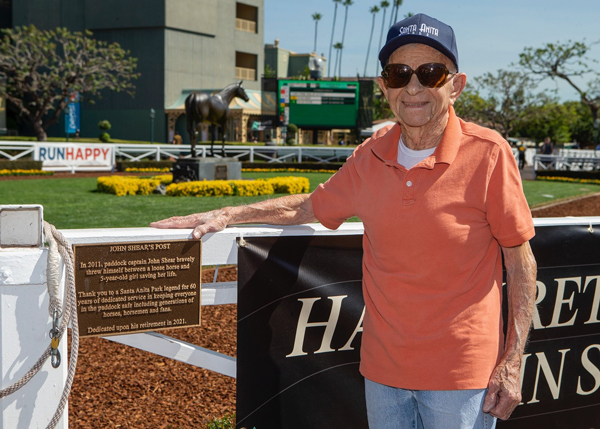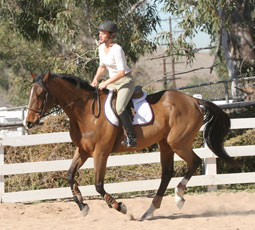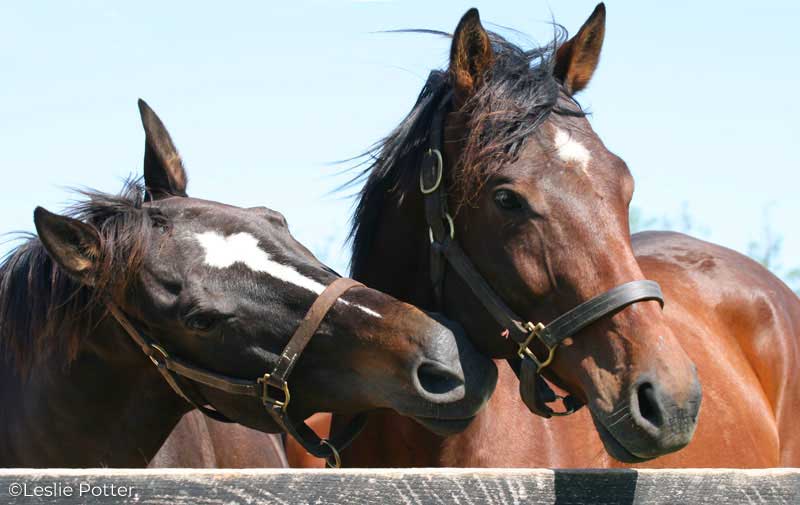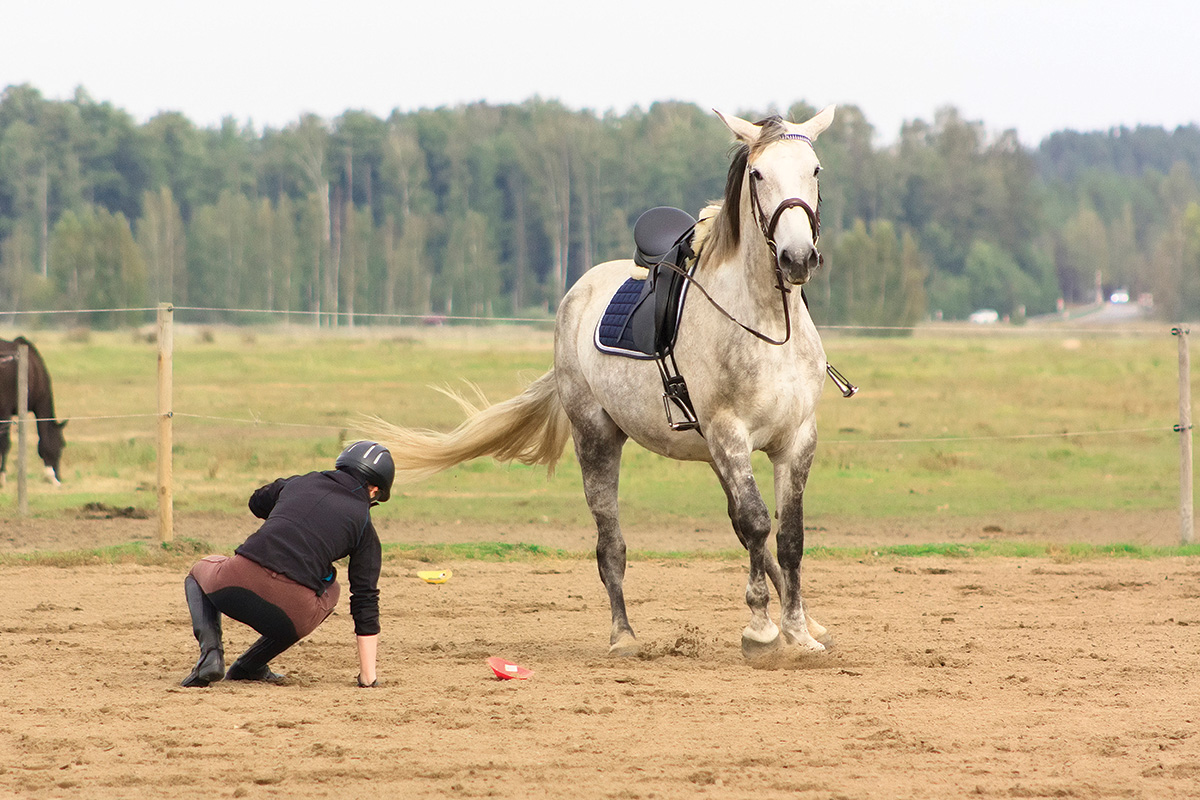
Regaining confidence after a fall can be one of the toughest challenges faced by a rider. Photo by Au_Cr/shutterstock
If you’ve ridden horses for any length of time, you know that falling is part of the process. Some riders have the tendency to land on their feet like a cat and make it look like an effortless, involuntary dismount.
I land like a turtle—on my back. While I am clumsy by nature, I strongly feel it is my lack of physical fitness that results in my lack of finesse and potential for injury. When we as riders have control of our bodies and are more physically fit, we have more confidence in both our riding and in handling a situation gone sideways—sometimes literally.
We can say the same of our mental fitness. We must build our mental muscles because not every ride will be good, and we need to learn to build our confidence.
“After a fall, the critical voice in our head typically tells us we are terrible riders, that we should have reacted differently, and that we are now failing,” says sports and exercise psychology coach Annika McGivern. “None of this is true, but this voice can keep us in a place of internal misery long after the events of the fall are behind us.”
We second-guess ourselves, our horses, and most of all, our skills in the saddle. However, there are a few things we can do to regain confidence after a fall.
Take a Moment
Horses snap out of their fight-or-flight state quickly, and move on as if nothing happened. Humans have a tougher time letting go. McGivern suggests focusing on your breathing.
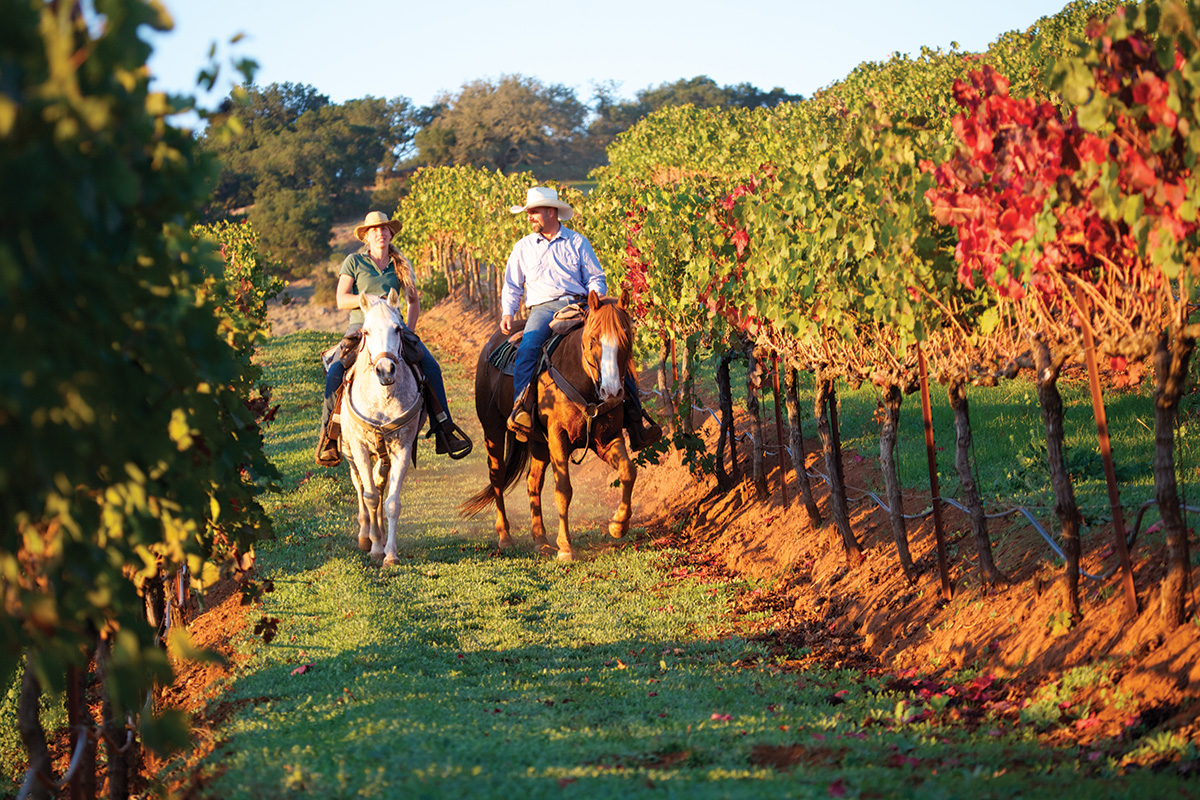
Focus on your breathing and think about moving forward with the partnership you have with your horse. Photo by Julie Vader/Shutterstock
“It’s OK and normal to feel scared in the saddle when you first get back on after a fall,” she says. “Any time you feel scared, commit to focusing on deep belly breaths. As you breathe, release any tension in your body and try to smile. This will help tell your brain that you’re safe and undo the fear response that was created from the fall.”
Deep breathing will also help reduce your heart rate and bring it back down to a manageable level that won’t alarm your horse into thinking a threat is still out there.
Don’t Get Emotional
As an overthinker, I replay a tough ride over in my mind to question how I could have done things differently. Every “bad ride” has a lesson to learn. Understand what happened, then let it go.
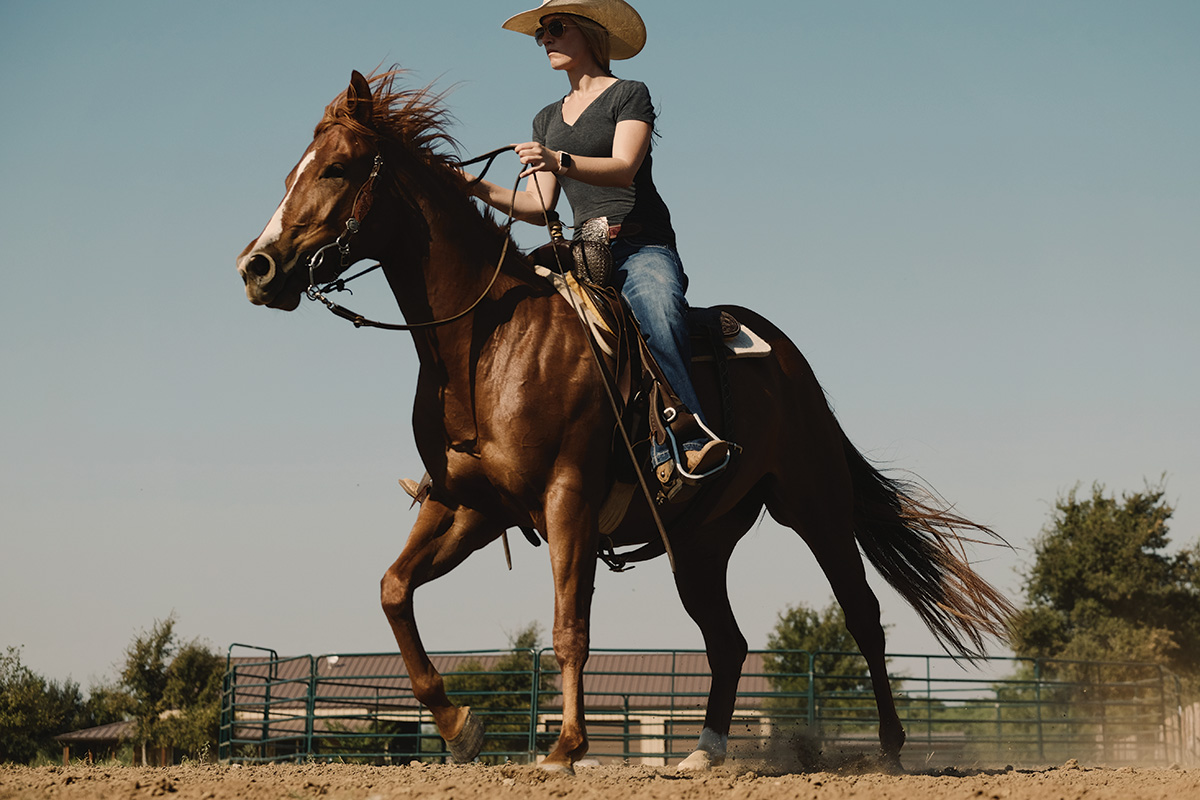
There are lessons to learn from every fall, so use the experience to help you grow as a rider. Photo cctm/Shutterstock
“It’s easier to be kind to yourself when you realize that taking responsibility and beating yourself up are very different things,” says McGivern. “Taking responsibility means accepting the opportunity to learn something important and become a better rider because of that tough experience. Beating yourself up only makes you feel more unsure of yourself and can destroy confidence in the long term.”
I was riding my pony in the woods when we both heard a strange sound. Before I could point him toward the sound, he dropped his shoulder, wheeled around, and I shot to the ground like a missile. Rather than get angry at him or myself, I focused on improving my balance in the saddle so that I could have a stickier seat rather than an ejector button.
Lesson Learned
Not every ride is a catastrophe waiting to happen. With each positive experience, your confidence as a rider will grow, and you realize that the days you fall are actually quite few.
“Every fall holds a huge lesson,” says McGivern. “Did you fall off because you couldn’t see the distance and threw your upper body at a long spot? OK, time to become an expert at finding your distance.” Learn from the experience and let it help you grow as a rider.
Trainers are wonderful examples of this mindset. I recently watched a trainer with a young horse at his first competition. When he refused a scary jump, she was caught off balance at the wrong time, landing on her feet and catching the reins. Years of experience had taught her how to fall and respond quickly with muscle memory to catch her horse. Now she can improve her horse’s confidence in those situations during training.
Acknowledge Intrusive Thoughts & Face the Disappointment
“After a fall, the critical voice in your head typically has a field day,” says McGivern. “It tells you you’re a terrible rider and you should have reacted differently. This self-doubting voice can keep you in a place of internal misery. The first step toward regaining confidence is to acknowledge it’s not truth, but a reflection of your inner doubts and fears.”
Training your mindset is just as important as training your horse.
In this video from Ridely, expert mind coach Annette Paterakis gives us some great tools that should help us understand and feel our disappointment and then channel it into something that we can learn from to improve in the future.
Horses have a unique way of challenging us. Falls occur periodically as part of the learning process. It can be scary getting back on, especially if you’ve been hurt. Rather than focusing on the fear and getting mad at yourself or your horse, focus on breathing and how you can change your mindset so that you move forward together as a partnership. Build your mental skills and soon you will find your confidence improves in the saddle.
This article about regaining confidence as a rider appeared in the October 2022 issue of Horse Illustrated magazine. Click here to subscribe!


